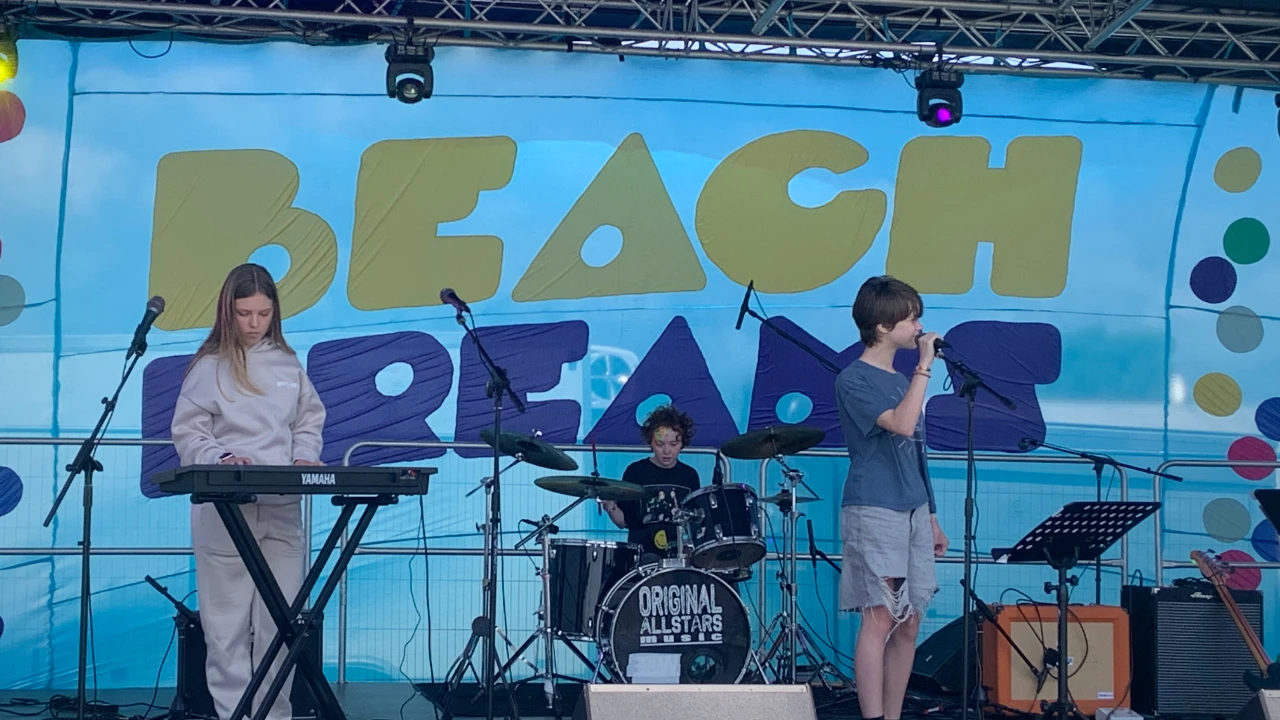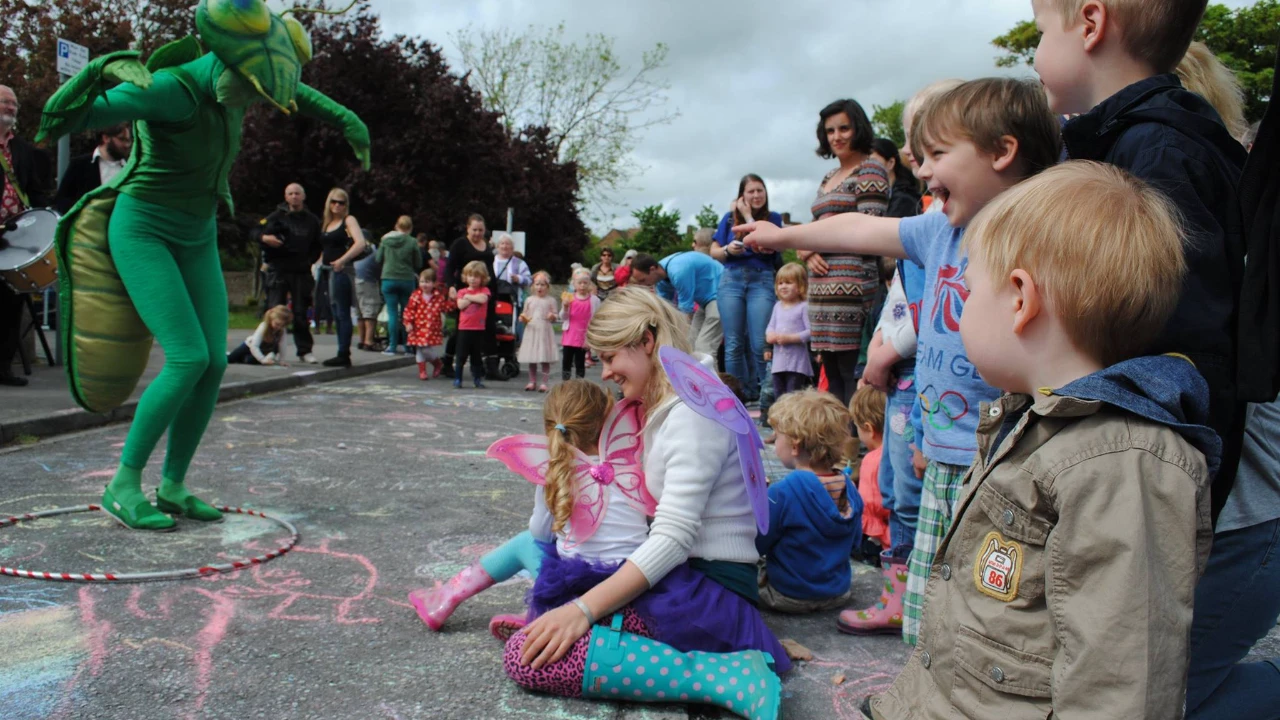A Celebration That United a Community
For nearly three decades, the Adur Festival was the heartbeat of arts and culture in West Sussex. This beloved annual celebration brought together residents and visitors to experience the vibrant tapestry of visual arts, music, theatre, literature, dance, and community spirit that defined the Adur district. Explore the festival's remarkable journey, discover its lasting impact on our community, and learn how we're working to bring this cherished tradition back to life.
Three Decades of Community Spirit
From its establishment in 1987 to its pause in 2017, the Adur Festival brought nearly three decades of joy, creativity, and togetherness to our community. Follow the festival's evolution from its early council-funded years through its transformation into a community-led celebration, and discover the challenges that led to its temporary pause.
1987
Festival Established
The Adur Festival was established as an annual celebration of arts and community in the Adur district of West Sussex.
Early Years
For over two decades, the festival took place in the first two weeks of June each year, quickly becoming a fixture of the local cultural calendar.
1990s-2000s
Growth
The festival grew steadily in scope and popularity. By the 2000s, it featured hundreds of events across towns like Shoreham, Lancing, Sompting, and Southwick during its fortnight-long run.
2008
21st Festival
The 21st Adur Festival included a two-day Sompting Arts & Beer Festival, art exhibitions in Shoreham's historic churches, and live entertainment in town centers.
2012
Funding Changes
Adur District Council decided that continuing to solely fund the festival was "unsustainable" amid tightening budgets.
2013
New Coordination
The Ropetackle Arts Trust took over coordination of the festival, transitioning to a mixed-funding model.
2016
Last Full Festival
The last full Adur Festival was held, after which it faced funding challenges and leadership transitions.
2017
Pause
The festival took a "pause" and has been dormant since, though interest in revival has persisted in the community.
Memories That Made History
Throughout its remarkable history, the Adur Festival transformed our district into a vibrant canvas of creativity and joy. From art exhibitions in historic churches to carnival parades through our streets, each year brought fresh experiences that brought our community together, often united by inspiring themes that sparked imagination across all ages.
Festival Themes
Signature Events
The festival was known for its diverse programming, including:
Art exhibitions
in historic churches and community spaces
Live music performances
from local and visiting artists
Theatre shows and stand-up comedy
entertaining audiences of all ages
Family activity days
and creative workshops
Guided history walks
highlighting local heritage
Street parties
with carnival parades
World Oceans Day
"Environment Festival" on Shoreham Beach
International Neighbours Day
celebrating cultural diversity
Beer festivals
and pop-up tea rooms
How the Festival Was Funded
Behind every successful festival was a story of financial resilience and community partnership. The Adur Festival's funding journey reflects both the challenges and opportunities of sustaining grassroots arts in an ever-changing economic landscape.
Early Funding (1987-2012)
In its early decades, the Adur Festival was predominantly funded and managed by Adur District Council as part of its community arts support. The Council underwrote the festival's core costs up until 2012.
Transition to Mixed Funding (2013-2016)
Starting in 2013, the nonprofit Ropetackle Arts Trust took over coordination of the festival. The festival's income became a mix of grants and local support:
Arts Council England (ACE) grants
provided primary funding
Reduced contribution
from Adur District Council
Support from the Sussex Community Foundation
Shoreham Port
became a headline corporate sponsor in 2015
"Adur Pot of Gold"
community grant scheme funded specific projects
In-kind support
and small sponsorships from local businesses
A Festival By the Community, For the Community
What made the Adur Festival truly special was its open-door philosophy. This wasn't just a festival that happened to our community—it was one created by it. Anyone with a passion for the arts could register an event under the festival banner, transforming the Adur district into a stage where everyone had a voice and every idea had a chance to shine.
Community Participation
Public planning meetings and workshops to shape the festival
Open registration system for events from any community member
Schools, art clubs, choirs, and local organisations all contributing
Community fundraising through raffles and local donations
Local libraries hosting author talks and reading events
High-street shops and cafés distributing festival brochures and hosting small events
Festival Impact
The festival had significant impacts on the Adur community:
Provided a platform for local expression and creativity
Strengthened community bonds across different towns in the district
Supported local businesses with increased footfall during festival weeks
Put Adur's name on the cultural map, attracting visitors to the area
Fostered a strong sense of local pride and identity
When the Music Paused
After 25 incredible years of bringing our community together, the Adur Festival faced mounting challenges in the mid-2010s. Like many grassroots arts initiatives across the UK, the festival encountered a perfect storm of circumstances that ultimately led to its temporary pause.
Major Turning Points
2012:
Adur District Council announced it could no longer directly sustain the festival due to budget pressures
2013-2016:
The Ropetackle Trust successfully ran the festival with external funding and volunteer power
2017:
The festival took a "pause," breaking the annual tradition
Contributing Factors
Funding challenges:
Arts Council funding cycles ended, and grants were not renewed at the same level
Leadership transition:
Festival coordinator Mella Faye-Punchard moved on to other projects
Increasing costs:
The festival's growth meant higher production costs for large outdoor events and international acts
Volunteer capacity:
Organizing such a complex event required significant volunteer manpower
Lack of sustainable structure:
No established independent festival committee to continue once Ropetackle stepped back
The Revival Begins
While the festival may have paused, the spirit that made it special never left. Throughout the years since 2016, the memories and magic of the Adur Festival have lived on in the hearts of our community. The question on everyone's mind hasn't been if we should bring it back, but how we can make it even better than before.
Current Status
The dream of revival has been kept alive through countless conversations in cafés, community halls, and planning meetings across Adur. In 2023-2024, those conversations became action as community leaders and arts enthusiasts came together with renewed purpose. Communities across the UK have shown that beloved festivals can rise again with passion and planning. Now it's our turn to ask: Can we bring back the Adur Festival?
Learning from Success Stories
Festival revivals across the country have proven that dormant celebrations can flourish once again. With fresh leadership, business partnerships, and a groundswell of community support, festivals can return stronger and more inclusive than ever. These success stories aren't just inspiring—they're our roadmap forward.
Building a Stronger Future Together
Bringing back the Adur Festival isn't about recreating the past—it's about building something even better for our future. By learning from our history and drawing inspiration from successful revivals elsewhere, we're crafting a sustainable approach that honors our community's creative spirit while embracing new opportunities for growth and inclusion.
Be Part of the Revival Story
The Adur Festival's next chapter is being written right now, and we want you to be part of it. Whether you're an artist, a volunteer, a potential sponsor, or simply someone who believes in the power of community celebration—your voice matters. Join us in bringing this beloved tradition back to life.
Get Involved Today

